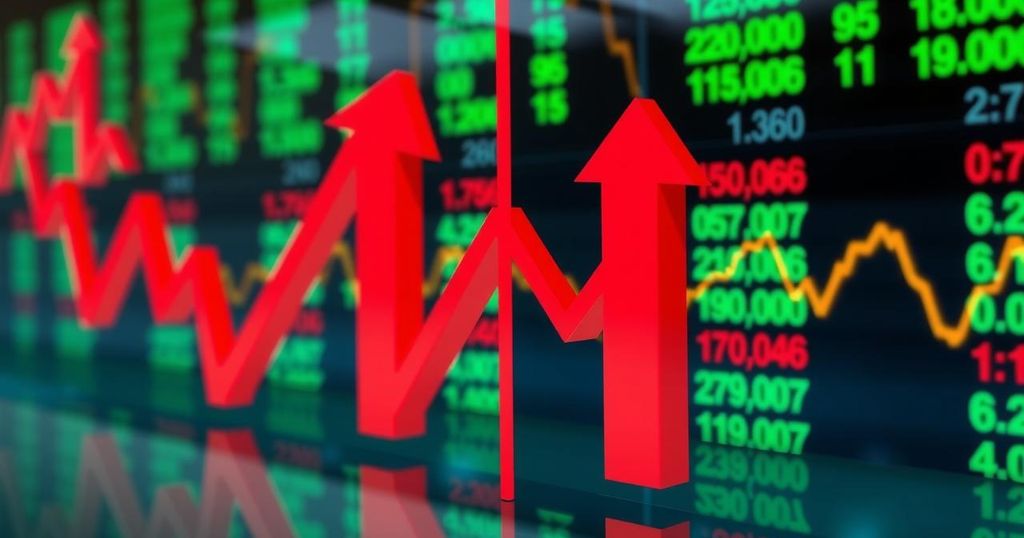US Futures Decline While Asian Markets Rise on Positive Chinese Data

U.S. equity futures declined following Treasury Secretary Scott Bessent’s remarks on market corrections, while Asian shares rose due to positive consumption data from China. Oil prices increased with expectations for higher demand. Investors are awaiting crucial U.S. data and central bank meetings amid ongoing market volatility.
U.S. equity futures declined as Treasury Secretary Scott Bessent characterized the recent market downturn as a healthy correction, emphasizing that there is no significant cause for alarm. In contrast, Asian stock markets experienced gains, driven by promising consumption data from China, as reported by News.Az citing Bloomberg. Oil prices also increased on expectations of heightened demand from China, the world’s leading importer.
Bessent’s remarks affected U.S. stock futures, which have seen a substantial decline, erasing trillions in market value in light of efforts to adjust U.S. economic policies. In Europe, there is considerable focus on Germany, where Chancellor-in-waiting Friedrich Merz’s spending plans are pending parliamentary approval this week. U.S. retail sales and manufacturing data, set to be released on Monday, could provide greater insights into the economic landscape prior to the Federal Reserve’s imminent policy meeting.
Travis Spence, the global head of exchange-traded funds at JPMorgan Asset Management, noted the prevailing investor uncertainty, stating, “There’s a lot of investor trepidation across the market now, trying to digest all the additional volatility that’s happening and additional uncertainty.”
In Asia, stocks advanced in Australia, Japan, and South Korea fueled by Chinese consumption data. While Hong Kong’s key index for Chinese shares increased, the onshore CSI 300 Index saw a slight decline, reflecting concerns regarding a potential housing crisis in China. Furthermore, U.S. Treasuries remained stable, with the benchmark 10-year yield decreasing by one basis point to 4.30%.
Additionally, investors are closely observing various central bank meetings this week, amidst President Trump’s trade measures creating tension for policymakers. Expectations suggest the Bank of Japan will maintain its interest rates following a recent increase, while the Bank of England is likely to keep rates unchanged. Federal Reserve Chairman Jerome Powell faces the challenge of reassuring investors about the economy’s stability while preparing for necessary support measures.
Analysts from Barclays Plc, including Jonathan Millar, stated, “Trump and his administration have expressed more tolerance for adverse economic fallout from tariffs than we had thought.” They anticipate the Federal Reserve will signal only one interest rate cut this year and two in the following year. In the commodities market, gold saw a slight uptick after experiencing its first decline in four days due to shifting risk sentiment.
In summary, the U.S. futures have fallen due to Treasury Secretary Scott Bessent’s assessment of the market correction, while Asian shares rose on positive data from China. Upcoming central bank meetings and U.S. retail and manufacturing data will be crucial in shaping economic insights ahead of the Federal Reserve’s policy decisions. Overall, investor sentiment remains cautious amidst increasing volatility and economic adjustments.
Original Source: news.az








